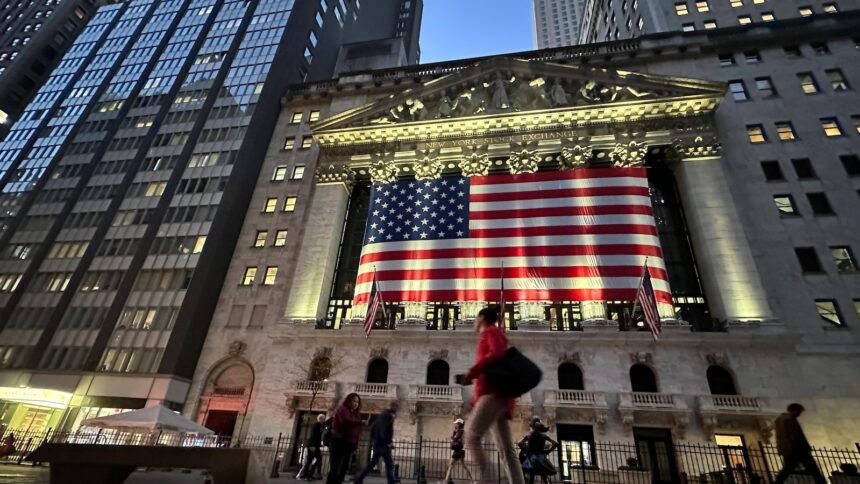Asian markets experienced mixed trading on Wednesday as investors reacted to recent movements in U.S. stocks, which retreated from record highs. The focus in the markets is increasingly shifting toward the Federal Reserve’s anticipated interest rate policy, with expectations of the central bank’s first rate cut of the year looming.
In Japan, the benchmark Nikkei 225 rose 0.2% in morning trading, reaching 44,995.79. However, Japan’s Finance Ministry announced that exports to the U.S. fell by 13.8% in August compared to the same month last year, marking the fifth consecutive month of declines. This drop was largely attributed to a downturn in auto exports, impacted by tariffs imposed during President Trump’s administration. Recently, U.S. tariffs on Japanese automobiles and parts were reduced from 27.5% to 15%; however, this figure remains significantly higher than the original rate of 2.5%.
Overall, Japan’s exports for August showed little variance, declining by just 0.1%. Exports to Europe and the Middle East, however, saw growth during the same period.
Down under, Australia’s S&P/ASX 200 index fell 0.7% to 8,812.80, while South Korea’s Kospi index dropped nearly 1% to settle at 3,415.71. Conversely, Hong Kong’s Hang Seng index surged nearly 0.9% to 26,662.13, whereas the Shanghai Composite experienced a slight decline of less than 0.1%, ending at 3,858.74.
In U.S. markets, the S&P 500 dipped 0.1% from its latest all-time high, while the Dow Jones Industrial Average declined by 125 points, or 0.3%. The Nasdaq composite also slipped 0.1% from a record set the day before. Expectations of a forthcoming interest rate cut by the Federal Reserve have driven stocks to new heights, as analysts believe a struggling job market poses a greater risk to economic stability than increased inflation, a lingering consequence of tariffs.
Despite high inflation rates remaining above the Fed’s 2% target, a report indicated that U.S. retail spending surpassed economists’ forecasts last month. The growth in consumer spending could partially stem from the increased prices of goods, yet it may also reflect robust household expenditures that could stave off recession concerns.
Traders’ anticipation of a rate cut on Wednesday, alongside the potential for additional cuts through 2026, has raised stock market expectations. However, such heightened anticipation can lead to disappointment if the outcomes do not align with the projections. Despite concerns about overvaluation, global fund managers have tilted their portfolios towards equities, marking the highest level of such activity in seven months, according to Bank of America’s latest survey.
In corporate news on Wall Street, shares of the New York Times Co. fell 1.6% following President Trump’s $15 billion defamation lawsuit against the newspaper and its journalists, alleging a history of intentional defamation as the 2024 election approaches. Conversely, Oracle’s stock increased by 1.5% amid speculation that the company may be involved in negotiations to secure TikTok’s continued operation in the U.S.
The S&P 500 decreased by 8.52 points to finish at 6,606.76, with the Dow Jones Industrial Average dropping 125.55 points to close at 45,757.90. The Nasdaq composite sank 14.79 points to 22,333.96.
In the bond market, the yield on the 10-year Treasury note eased to 4.03%, down from 4.05% on Monday. Energy prices also fluctuated, with benchmark U.S. crude losing 8 cents to settle at $64.44 per barrel, while Brent crude dipped 9 cents to $68.38. In currency markets, the U.S. dollar gained ground, rising to 146.69 Japanese yen from 146.40 yen, while the euro weakened to $1.1852 from $1.1867.







